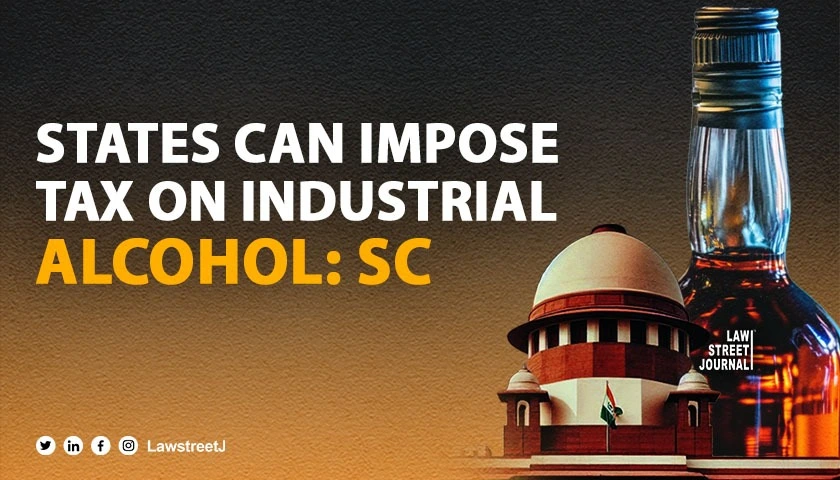NEW DELHI: The Supreme Court on Wednesday upheld the power of States to impose tax on all kinds of alcohol, including the industrial alcohol and its raw material, in a judgment which would provide major boost to their revenue.
A nine-judge Constitution bench led by Chief Justice of India D Y Chandrachud by a majority view of 8:1 ruled that industrial alcohal comes within the meaning of 'intoxicating alcohal' under Entry 8 of the State List, so the States can regulate and tax it.
Supreme Court Grants States Authority to Tax Industrial Alcohol
The majority said that intoxicating liquor under Entry 8 cannot be restricted to potable alcohol. Though Entry 52 of the Union List empowered the central government to regulate those industries which have been declared by Parliament to be of public interest, legislative lists must be given a wide interpretation, the bench said.
It felt that there can be an overlap between the two entries and the way out is to reconcile the two entries to see that neither are rendered redundant.
Nine-Judge Bench Rules Industrial Alcohol Falls Under ‘Intoxicating Liquor’
The court, therefore, overruled its 1990 judgment which had held that intoxicating liquor referred only to potable liquor and States cannot tax industrial alcohol.
The matter was referred to the nine-judge bench in 2010.
Justice B V Nagarathna was a lone judge who gave a dissenting judgment.
The other judges in the bench were Justices Hrishikesh Roy, Abhay S Oka, J B Pardiwala, Manoj Misra, Ujjal Bhuyan, Satish Chandra Sharma and Augustine George Masih.
Entry 8 of the State List empowered a State to make laws for “intoxicating liquors, that is to say, the production, manufacture, possession, transport, purchase and sale of intoxicating liquors.”
However, under Entry 33 of the Concurrent List both the State and Union governments can make laws on the products of any industry, even if Parliament has granted control to the Union in public interest, which became a point of contention as who has the power to regulate industrial alcohol.
The Uttar Pradesh government had on January 13, 1990 issued a notification under UP Licences for the Possession of Denatured Spirit and Specially Denatured Spirit Rules, 1976 (1976 Rules) and imposed a licence fee of 15 paise per litre on the quantity of specially denatured spirit obtained from distilleries, which led to the filing of petitions.

















